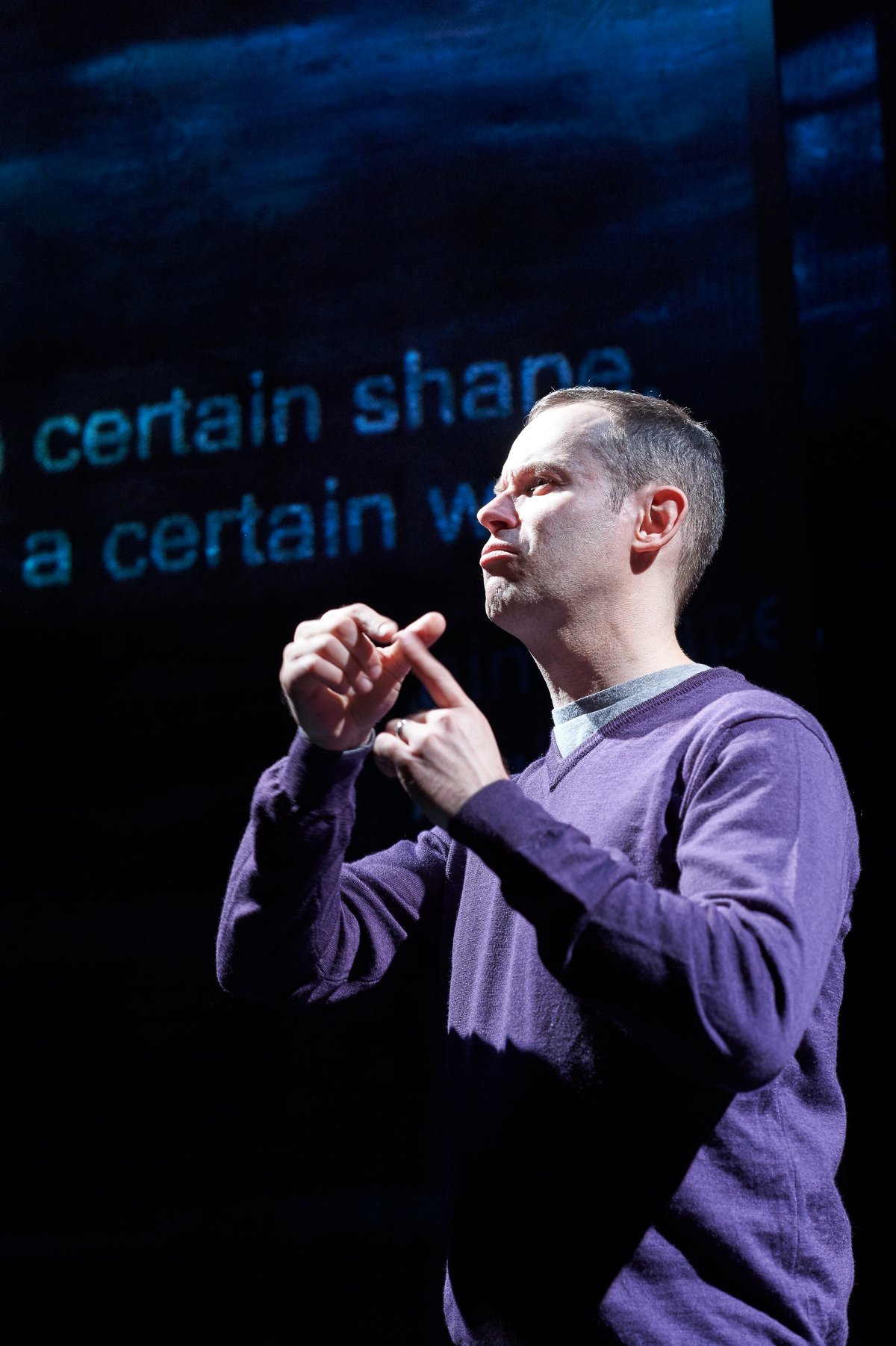At the most basic level, plays are both a visual and auditory medium: you need to see the actors and hear what they’re saying to enjoy the work.

Now a new play, a co-production by the Toronto-based Theatre Passe Muraille and Cahoots Theatre, is taking that formula and giving it a new twist.
Titled “Ultrasound”, the play centres around two characters: one is deaf and one is hard of hearing – the former speaks only in sign language throughout the play. In order to convey his speech to audience members not familiar with American Sign Language (ASL), lines of dialogue are projected onto the set as the characters interact.
Combined with various lighting and sound choices, the play seeks to be accessible to both the deaf and hearing communities.
“Knowing that one character signed all of their dialogue and another character – kind of in the learning phase of ASL – signed half their dialogue, we recognized that the challenge of this play was not being able to invite deaf audiences, but in fact, being sure that a hearing audience would have access to all the play,” Marjorie Chan, the director of “Ultrasound”, told Global News.
READ MORE: Filipino mother fights to have deaf daughter live in BC
That led to the creative decision to use “surtitling”, wherein lines of dialogue are projected onto the set or scenery as the actors spoke (or signed) the lines.
“You see it in opera, where it sits above the opera singers. You see it in movies, where’s it’s called captioning,” Chan said. “For us, we wanted it to not only to just to be perfunctory, but actually part of the way you envision the play.”
The result is a play that challenges the audience perception of a night at the theatre (for those unfamiliar with ASL, there is a fair amount of reading to be done) but can provide some unexpected surprises as well.
For instance, the play opens with one character performing an impassioned soliloquy from Shakespeare entirely in sign language, a rather bold declaration that this will be something familiar, presented in a way you’ve maybe not seen before.
“Ultrasound” is the story of a couple struggling with the consequences and ramifications of having children. Alphonse (played by Chris Dodd) is completely deaf, and staunchly argues that his child-to-be should be deaf as well. His wife Miranda (Elizabeth Morris), an aspiring actress, is only partially deaf, and begins to grow angered by Alphonse’s stubborn attitude and increasingly militant viewpoints.
Both Dodd and Morris are members of the deaf community, adding a level of authenticity to the way they communicate on stage. For Morris, the play was an opportunity to speak to members of both the deaf and hearing communities.
“Ninety per cent of deaf children come from hearing families,” Morris said. “So I really wanted people to have the opportunity to see what inclusive theatrical productions look like.”
WATCH: Deaf man’s touching reaction to finding out wife is pregnant
The play represents the debut work from Saskatchewan-born writer Adam Pottle, also a member of the deaf community, who injected plenty of his own background – a love of death metal, a focus on the local theatre scene and the struggles of the deaf in a hearing world – into the play’s narrative.
“Deaf and disabled people seldom get the chance to share their stories, whether in the theatre, in literature, in film or in television,” Pottle said. “For two major Canadian theatre companies to throw their weight behind a play like this constitutes a distinct shift in the artistic landscape, a shift that will hopefully spur other Canadian theatres into exploring these subjects.”
According to Chan, the play has generated an enthusiastic response from deaf and hard of hearing audiences who have seen it.
“We’ve had some very good responses from the deaf community,” Chan said. “It’s a visual community, a face-to-face community, and so we’re just starting to see the results of that.”
“Ultrasound” completes its run on stage on May 15.













Comments